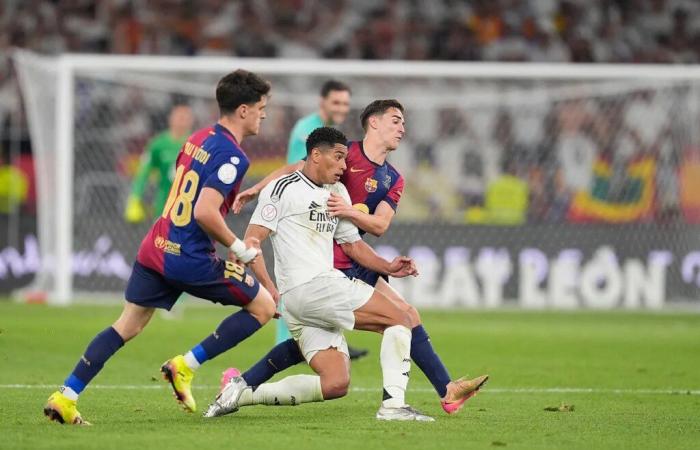The power of countries is not only measured by the size of their armies and the deterrence of its nuclear arsenal (hard power), but also by other elements such as cinema, gastronomy, science and language, among many others, which constituteThey are soft with which a medium state like Spain can, globally, some capacity for persuasion and attraction.
In Spain these elements have been integrated into what was popularly called Spain. One of the aspects that has evolved the most is sport, with football as a flag in the transmission of values that sought to give a more modern image and less associated with topics abroad.
“We have had champions of Europe and the world of clubs and selections; the same with male football. They have been moments where Spain has been able to breastfeed from a job well done that has contributed to the image of Spain,” explains the director of International Relations of Laliga, Keegan Pierce.
Perhaps the origins of football as a diplomatic factor for Spain must be sought in the 50s (the time of the “Spain is different”), with Real Madrid, first with the signing of Alfredo Di Stéfano in 1953 and, then, with the achievement of five leagues in Europe in a row between 1956 and 1960. The signing of Johan Cruyff for FC Barcelona (1973), the organization of the World Cup (1982) and the Olympic Games of Barcelona (1992) created a breeding ground.
“From 2010 to today, Spain has gone from being the red fury to a team from which the talent and a winning and excellence mentality stand out,” he adds. The turning point was the victory in the World Cup in South Africa (2010), preceded in 2008 by the Eurocup, which the Red raised again in 2012 and 2024, in addition to the historic struggle between Ronaldo and Messi, leaders of two rival teams (Real Madrid and FC Barcelona) of the same competition that made LaLiga internationally. To all this are added the last leagues of Real Madrid champions and Barça in male competitions and this last club in women’s football.
Some of the aspects of the outer image of Spain that were underpinned with these tournaments are individual talent and collective, equality between men and women and a discipline combined with a champion mentality in an area, sport, historically more associated with men and where not only strength and thrust are important, but also preparation and rational, inside and outside the field.
“To some extent, it reinforces the entire system behind it that has allowed us to arrive where we are: professionalization, financial discipline, international mentality, equal rules for all …”, summarizes Pierce, who considers that football “has not changed the image, but has introduced nuances in aspects such as excellence, rigor and innovation, without giving up the values for which Spain was known, such as being a friendly, spontaneous and warm country.”
Football is one of the elements that has helped evolve the image of the country and must be seen, according to experts, within a broader narrative. In sport, disciplines such as tennis, motorcycling and formula 1 have contributed to improving the image of Spain as a winning country, although their participation in the Olympic Games hardly goes from a discreet classification, between positions 15 and 20 in the medallero.
Sports diplomacy
Currently, the country occupies the 13th position in the world classification of soft power, headed by the United States, according to data from the consultant Brand Finance. “Sports diplomacy has recently emerged as a relevant component of the foreign policy of the states,” he explained recently in an article for Funcas Carlos Pulleiro, professor of the International College of Football at the University of Tongji, in Shanghai (China). The expert refers to “the execution of the national interest through actors and/or sporting events” of elite.
“Spanish sports diplomacy is a dynamic field,” he continues, “where internal and foreign policy is intertwined with sport to try to positively influence the image and position of the country in the international sphere.”
But it is not only about lifting glasses, but also being present in the world of social networks. The 20 platforms and networks where LaLiga offers content total 1,100 million followers, a huge window that, through football, puts Spain on the map and “can serve as a bridge for Spanish companies,” concludes Pierce.






